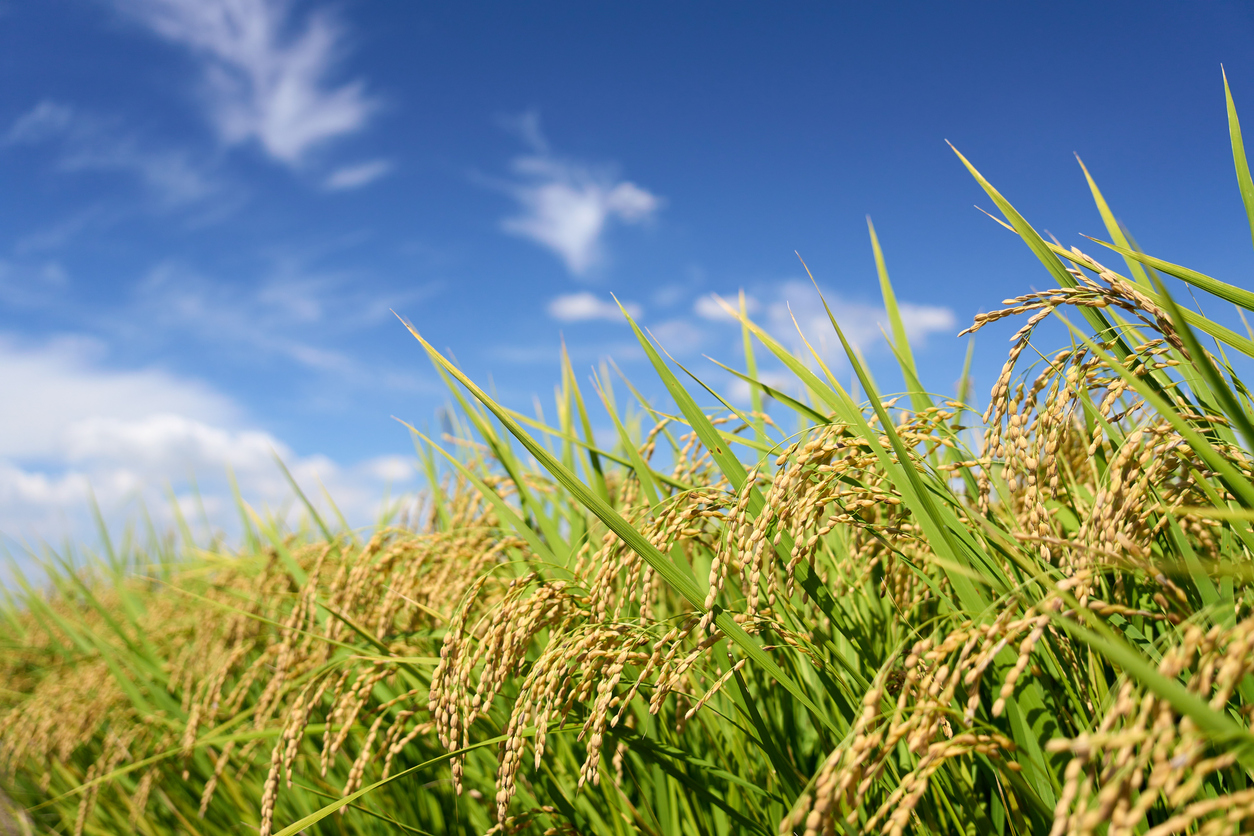
Researchers Identify Rice Protein Involved in Chloroplast Control and Stress Response
July 16, 2025| |
Fujian Agriculture and Forestry University researchers reported a rice protein that controls the chloroplast and stress response by dark-induced leaf death. Their findings, published in Plant Physiology, highlight the role of CRISPR gene editing in understanding leaf senescence in rice.
Leaf senescence can lead to metabolic changes that increase the chance of a plant's survival under stress conditions through the recycling of resources. The researchers conducted the study to elucidate the role of rice protein OsS40-14 in leaf senescence. By using CRISPR-Ca9 mutants and overexpression lines, they found that oss40-14 mutants maintained the green leaf phenotype under dark treatment, with preserved chlorophylls and photosynthetic capacity and reduced reactive oxygen species (ROS) levels. On the other hand, OsS40-14 overexpression lines showed faster leaf senescence.
With these findings, the researchers concluded that OsS40-14 fine-tunes the photosynthetic machinery and ROS homeostasis during developmental senescence and under dark conditions, thereby accelerating leaf senescence, reducing photosynthetic assimilation, and grain filling in rice.
Read more findings in Plant Physiology.
| |
You might also like:
- Novel CRISPR-Cas9 System Isolates Transgene-free Rice Crops
- CRISPR Makes Rice More Resilient to Bacterial Leaf Streak
- Gene Editing in Rice Using CRISPR-Cas12i3
Biotech Updates is a weekly newsletter of ISAAA, a not-for-profit organization. It is distributed for free to over 22,000 subscribers worldwide to inform them about the key developments in biosciences, especially in biotechnology. Your support will help us in our mission to feed the world with knowledge. You can help by donating as little as $10.
-
See more articles:
-
Plant
- Researchers Unlock the Pangenome of Barley's Closest Wild Relative
- Australia's Gene Technology Regulator Invites Comments on Commercial Release of GM Cotton
- Corn DNA Reveals Secrets to Vital Crop Traits
- Researchers Identify Rice Protein Involved in Chloroplast Control and Stress Response
- EU Authorizes Market Entry of GM Soybean MON 87705 × MON 87708 × MON 89788
-
Food
- 8th Asian Short Course on Agribiotechnology, Biosafety Regulation, and Communication (ASCA8)
- Perceived Value and Social Influence Drive Acceptance of GM Food in Spain
-
Health
- KAIST Researchers Engineer Microbe to Increase Lutein Production
-
Read the latest: - Biotech Updates (February 18, 2026)
- Gene Editing Supplement (January 28, 2026)
- Gene Drive Supplement (February 22, 2023)
-
Subscribe to BU: - Share
- Tweet

